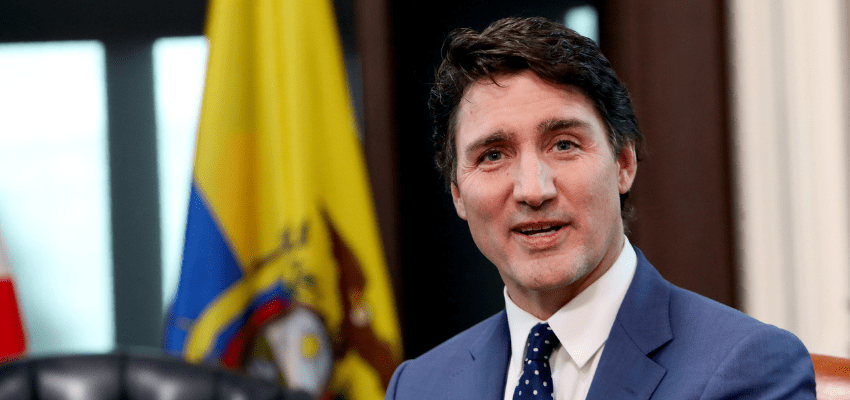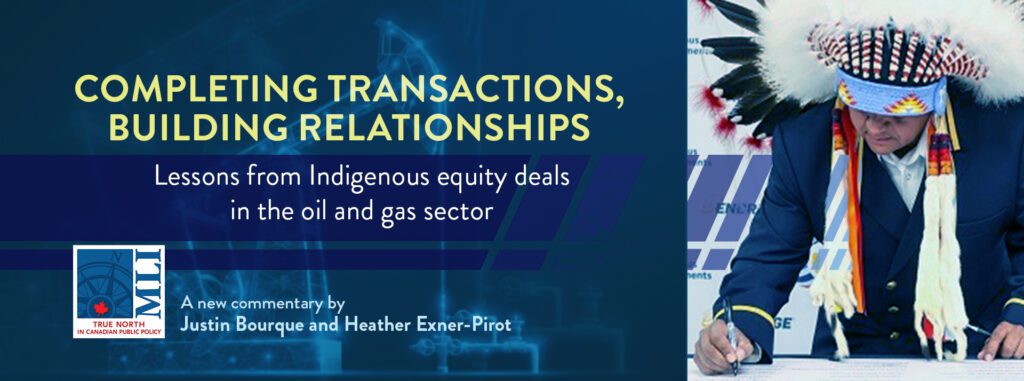This article originally appeared in the Hub.
By Michael Barutciski, November 25, 2024
The beleaguered Trudeau government recently released its annual report on immigration and it features a surprising about-turn—a pledge to significantly reduce immigration after years of touting it as a catalyst for Canada’s economic prosperity.
A proposed “temporary” reduction in “permanent resident” admissions—highlighted during an important press conference at the end of October—is getting the most media attention. However, the startling post-pandemic increase in the much larger “temporary resident” category is what ultimately destabilized the immigration system.
Traditionally, terms like “immigrants” or “immigration” refer to permanent residents. But under the current federal government, it now seems to include temporary residents who may not be allowed to stay for a prolonged period. The government’s commitment to a large amnesty program for migrants unlawfully present in Canada has apparently been dropped, yet the overall reduction targets raise doubts about the feasibility of the general course change.
Public confidence in the Canadian system is largely linked to two distinct policy challenges: choosing the right candidates from the available categories and responding effectively to uncontrolled migration. Economists are debating the categories currently prioritized in government selection, while lax controls have led to dilemmas regarding record numbers of visa overstayers and asylum claimants.
Any discussion on selection of economic categories should acknowledge the varying interests, as well as the key role played by lobby groups. Judging by initial responses to the latest annual report, it is possible to generalize that business communities are disappointed to the extent that they rely on cheap foreign labour. Yet, macroeconomists suggest the cuts will encourage the country to select talented immigrants and thereby increase productivity. If we compare reports submitted to Parliament over the years, it is normal that various governments support different priorities and weight distribution. What is not normal is the sense that the current government is not fully in control.
While the current record number of temporary workers and international students has contributed to post-pandemic growth, this barely controlled intake of low-skill migrants occupying low-wage jobs has also been lowering GDP per capita. The impacts of the proposed reductions are not easy to measure given that they depend on whether we focus on the cost of living, housing, labour shortages, public services, etc. Nevertheless, the announced changes risk further undermining the distinct aspect of the immigration system that gave Canada a competitive edge and contributed to maintaining public support: the careful selection of the best candidates outside Canada who can contribute to the economy.
Annex 4 of the annual report explains that “over 40 percent of overall” permanent admissions will be temporary residents “already in Canada.” In other words, temporary residents will account for 158,000 of the 395,000 permanent residents chosen in 2025. Annex 4 also shows that 82,980 of the 197,650 permanent residents from the economic class that Ottawa plans to select in 2025 (Quebec selects its own) will come from the In-Canada Focus category (almost 42 percent). These domestic draws mean that only 114,670 (or 29 percent) of the 395,000 permanent admissions will be overseas economic candidates. This number includes the primary candidate, along with any dependents.
The In-Canada Focus will lead to at least two important results. It will certainly help reduce the number of temporary residents by transitioning them to permanent status. But it will also mean fewer spaces available for other categories, particularly the economic candidates selected overseas under the globally emulated points system, along with skilled candidates approved by Provincial Nominee Programs.
The report outlines another change in priorities that seems questionable given the commitment to reduce overall numbers: Ottawa intends to reserve even more permanent slots for francophone candidates to settle outside Quebec. The stated urgency of the planned reductions is difficult to reconcile with a social engineering project that expands bilingualism across the federation.
On a positive note, the immigration minister’s commendable decision to include temporary residents in the annual report should be standardized and turned into an obligation by legislative amendment. If such a requirement were already in effect, it could have helped avoid the unintended consequences of the recent explosion in this category.
The legislative obligation to report data should also be extended to include information on asylum seekers. Although the government cannot plan future asylum claims, the numbers in recent years have become significant. According to the latest statistics, Canada is on track for a new record of around 180,000 asylum seekers in 2024. This information should be included in the report, along with data on source countries. Such a legal requirement would make it more difficult for the government to distract attention from its own visa policy decisions by misleadingly invoking global trends. Canada has become a global outlier because it is receiving a high number of asylum seekers who also happen to come from countries that are not typical refugee-producers (e.g. India, Bangladesh, Pakistan, Sri Lanka, Nigeria, Ghana, and Kenya).
The government’s overly generous visa issuance and weak enforcement have not only contributed to an explosion in asylum claims, there are now possibly over half a million migrants unlawfully present in Canada according to the immigration minister. Other estimates are significantly higher. It is time for Parliament to require the annual report to include data on removals and deportations given that this is now an important challenge regarding the system’s integrity. By not addressing these issues, doubts will be raised about the government’s commitment to implementing reductions and meeting targets for other lawful categories.
Unfortunately, the excessive focus on branding lends a superficial tone to the report. Even though it is full of data relating to gender distribution, this latest version omits basic information on countries of origin for permanent residents or any other category. This follows a worldview in which a person’s cultural background is not seen as particularly relevant according to Canada’s welcoming multicultural policy, while actual integration challenges and diaspora difficulties are simply ignored.
To sum up, while Canada is experiencing unusual controversies regarding its immigration policy, the minister responsible for this file has reported to Parliament with a promotional document that signals a temporary change of course. Many of the deeper challenges concerning future immigration planning are left unaddressed. Is the government tolerating visa overstayers and choosing less-skilled migrants because it does not want to conduct mass deportations? More data presented to Parliament will allow a better discussion.
In the meantime, the new White House administration arriving in January will only complicate matters as Canada attempts to gain control of its borders in an evolving global context in which protectionism and national interests are amplified.







